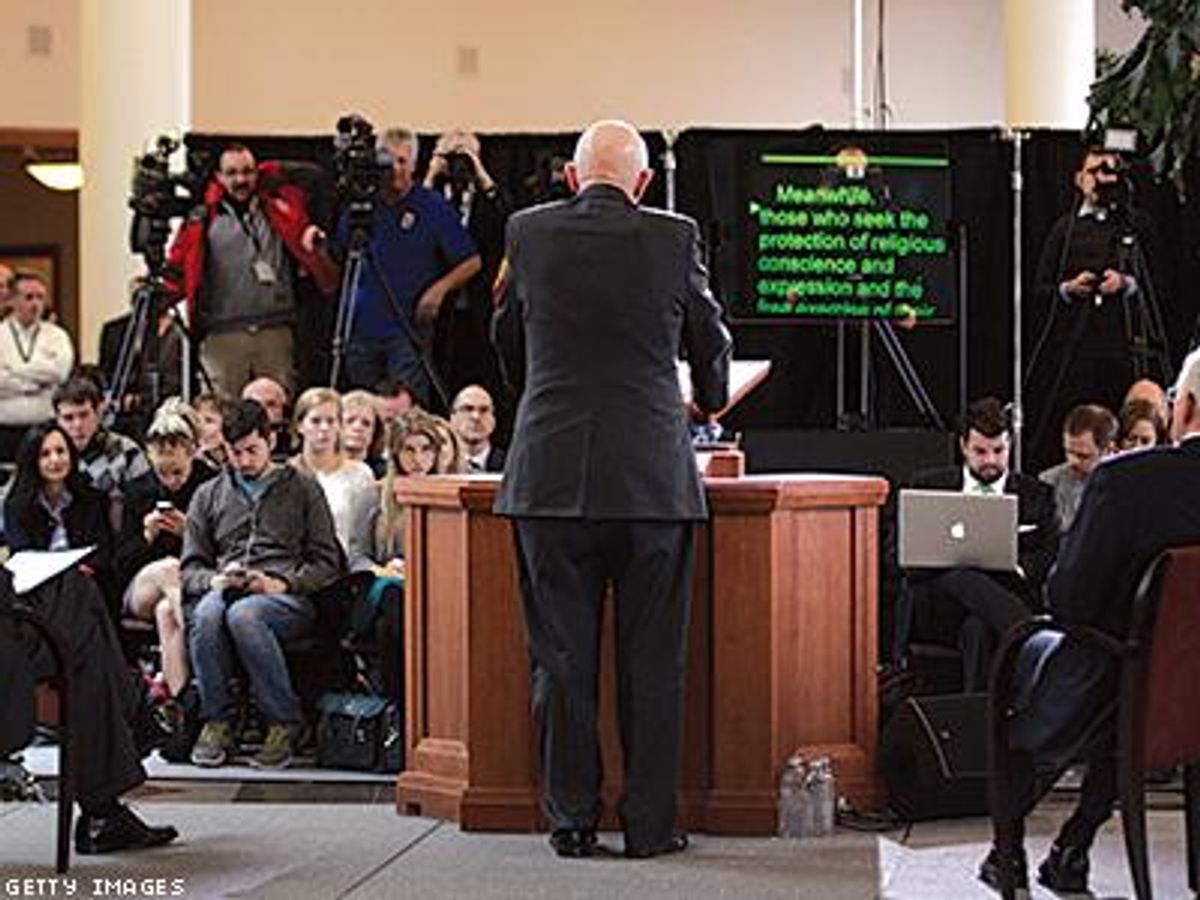Holy Joseph Smith! Utah?
That pretty much sums up initial acclaim for the housing and employment LGBT nondiscrimination law signed by the Beehive State's Republican governor Gary Herbert on March 12. The product of negotiations involving the ACLU, LGBT groups including Equality Utah, Democratic and Republican legislators, and the Mormon Church, the "Utah Compromise" was hailed by even the liberal Boston Globe as a "model for other red states."
But wows became yowls as details emerged. The new law exempts not only all religious entities, along with their "affiliates," but even the Boy Scouts. A companion law lets county clerks opt out of solemnizing same-sex marriages if they provide stand-ins and perform no marriages at all.
Eric Ethington of Web site LGBTQNation complained of "a Trojan horse for the religious right's agenda." Queer Nation and others slammed the involvement of University of Illinois law professor Robin Fretwell Wilson, a prominent proponent of religious carve-outs from marriage laws and religious freedom restoration acts, or RFRAs.
A picture painted by many commentators described the queer rights activists as caving to the Mormon Church -- and to Wilson. Not so, say supporters.
First, LGBT protections were grafted onto a pre-existing nondiscrimination regime that already essentially "completely exempted religious organizations," as ACLU senior staff attorney Rose Saxe explains in a phone interview, referring to the existing law's carve-outs for religious corporations, organizations, associations, and wholly owned subsidiaries or agencies of any religious organization. "Against that backdrop," she says, "I think it provides important protections in Utah."
Equality Utah executive director Troy Williams, a principal negotiator, says he's happy with the law, "with the caveat of course that Utah [already had] the broadest religious exemptions in the nation."
Critics sometimes miss or ignore this context. There have been "strong reactions often from a distance without good understanding of Utah law," Lambda Legal senior counsel Jenny Pizer says.
Williams faults certain opponents who won't even discuss their gripes with him, dubbing them " 'nagtivists' -- people who aren't in the arena, people who don't actually get out there and do the work, but...who sit on Facebook and just rant against everybody who's not doing it the right way."
But he appreciates that some are "very suspicious," given the involvement of the Mormon Church and RFRA champion Wilson. Asked if he believes the church has truly changed its Prop 8 spots, Williams, who was raised Mormon, responds, "I think that their motives are probably complex," but he's sure "they don't want to be back at that really contentious, angry period" after Prop 8. Indeed, Williams credits the church with killing a proposed RFRA in Utah -- long before Indiana's blew up -- for fear of its divisiveness.
"Mormons have a large number of gay and transgender kids," he says, and "the culture-war battles have been ripping Mormon families apart...Church leaders are telling me that they're hearing this."
Wilson, who is the director of the College of Law's Family Law and Policy Program at the University of Illinois, sees Mormon motivation differently. She lauded the church in her Utah senate testimony for its "generous" outreach to gays. But "even more decent," she says, was its negotiation of expanded religious exemptions for other religious "affiliates," educational institutions, societies, and leaders. "That's where the evangelicals" and "mainline Protestants are getting protected."
She supports RFRAs, including Indiana's, but in a phone interview she labels as "kooks" those pushing to use RFRAs to discriminate, and she agrees that nondiscrimination would be a "compelling governmental interest" under those laws, trumping religious burden. She writes in an email that she "absolutely" supported proposed nondiscrimination amendments to the Indiana RFRA.
Despite favoring nondiscrimination generally, however, Wilson believes that "Big Jerk Photography," as she put it, should be allowed to refuse to work a gay wedding, because "marriage is a sacrament for many, many people," and marriage carve-outs are "not very much of a give." "When we write specific exemptions," she says, "we are trying to advance gay rights without having more...collision points with religious believers."
But collision seems inevitable when Utah legislators consider public-accommodations protections next year.

